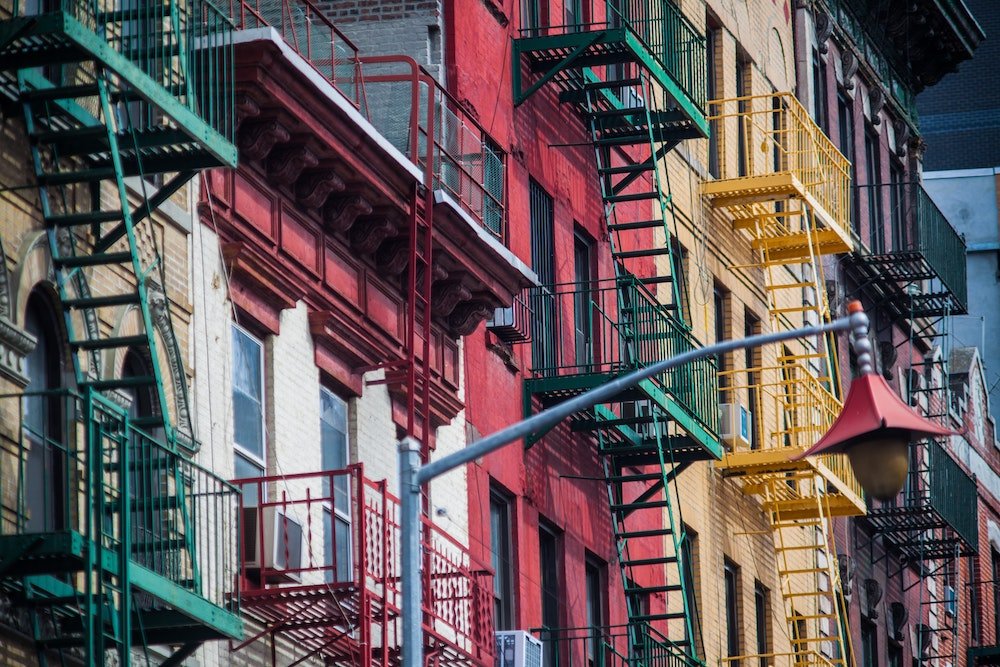"In the Absence of Colour" by Lori Green — Our June 2022 Bronze Medal Winner
Lori is our third place winner from the contest posted in our June 2022 issue!
What the judges had to say:
“The protagonist here walks a fine line between being stifled and free. Her insight belies her age and circumstance, which was a fantastic way for the author to emphasize the inner workings of a child forced into adulthood in less than perfect ways. The towers in the setting took on a life of their own, allowing readers to envision what was happening beneath their colourful exteriors; and the use of black as the absence of colour was both metaphorical and literal. A great story that was not pinned to any point in time, but was, rather, timeless, yet poignant.”
“The last line of this piece was so beautiful. You did a great job addressing tender subject matter...”
Meet Lori
Lori Green is a Canadian writer who has been writing poetry and dark fiction since she first picked up a pen. Her work has been accepted in various publications including Ghost Orchid Press, Dark Rose Press, Black Hare Press, Love Letters to Poe, and more. She studied English Literature at the University of Western Ontario and now lives along the shores of Lake Erie with her husband and daughter. She is currently working on her first novel. You can follow her on Twitter @LoriG1408 or on Facebook.
In the Absence of Colour
the unedited story by Lori Green
The air in the city is hot and stifling, and Andy struggles to breathe.
She trudges up the street and reaches behind her, into her dirty canvas rucksack with the faded Pink Floyd emblem on the flap and pulls out half an apple. Its flesh has turned brown at the edges, but it was the best thing she had found in the dumpster on Halton Avenue. The other stuff she got wasn’t too bad, especially since the government had put limits on what restaurants and grocery stores could leave in their outside garbage bins. They wanted a neat and tidy appearance even in the back alleys of this crappy part of the city. Rainbow Alley, they called it, but it was just a dumping ground for pregnant women from the south side of the Canadian border. Here is where they came to have their babies or get rid of them. One way or another.
Andy has seen things, too many things for a young girl. Despite a midnight curfew, the city is overrun with gang violence, most of them women. Andy’s mother belongs to a gang, always bringing the party home with her and keeping her daughter awake long into the night. Andy hopes that someday soon, she will never see her mother, or this city, again.
How did it come to this? Thirteen years ago, with one crack of the gavel, women were once again under the male thumb. Perhaps the wheel of time would always come back to this, this constant ebb and flow of one step forward, two steps back. Andy’s mother told her all about the violent demonstrations and marches on Concord Hill, just before Andy was born. She had been arrested, so she fled here, North. Escaping prison, only to find another one.
Andy turns down the alley, the Purple Tower rising in front of her. Basically just a triage medical building, women are herded like cattle into dark rooms where, instead of real nurses, PSW volunteers take their information, perform simple medical exams, and take blood for testing, in case they need it for transfusions later. The women are then led to cramped waiting rooms and left to contemplate all the reasons that led them here, to this multi-layered level of purgatory.
The Yellow Tower serves as a precautionary building. A place where women are given books, magazines, and watch videos on reproductive health (you may regret this later), sexual consent (just say no), and adoption benefits (we will pay you $10, 000). It’s just a layover in their flight to whatever awaits them on the other side of pregnancy. If they even decide to have the baby, that is.
Andy’s mother says The Red and Green Tower is like Christmas, with nurses running in and out of rooms like Santa’s elves on Christmas Eve. It is here that women give birth, their labour sometimes long and painful. Their anguished cries shushed by many a nurse or midwife. After labour is over, the babies are wrapped in blankets like tiny gifts you would put under the tree. Infants in green blankets are immediately transferred to the adjoining tower without ever being placed in their mother’s arms. It is one of the agreements these women make before signing the adoption contracts. No contact. They aren’t even told if they had a boy or a girl, they are simply erased from their baby’s life, as if they never existed.
Red blanket babies are another thing altogether. They are the babies that are destined for death. Sometimes they die in their mother’s womb, yet they are carried to term anyways. Some are strangled by the umbilical cord inside the womb, and still others are deprived of oxygen in the long hours of difficult labour and do not make it. The Catholic nuns from St. Ignatius are always in attendance here, helping to carry out God’s will, whatever that may be. Novices assist the nurses in caring for these young mothers, while the older Sisters carry out the gruesome task of disposing of the tiny bodies. There are rumours that there are hundreds of babies buried in the surrounding grounds, thrown away like garbage; like they never mattered.
Andy shudders as she walks underneath the fire escape, afraid to look up. Afraid of the ghosts that linger here. She holds her breath and concentrates on getting to the last building, the Black Tower, the home she shares with her mother Jane. A place for the unwanted, the absence of colour in this long line of muted shades. More than a tower, it encompasses the entire city block, stretching out along the banks of the river. Women are sent here with pregnancies too far along to be considered for abortion, infants with special needs, or babies that simply cannot be adopted out in the appropriate amount of time. Their mothers forced to care for them with little to no income, surviving on government handouts and five-finger discounts. Andy is one of the unwanted, and a girl at that. Andy’s mother reminded her often how much of a burden she was. How much Andy looked like the man who had raped her.
But that wouldn’t matter soon. Andy had been sneaking money from her mother’s wallet for a couple of months now, planning her escape. If she could just get across the northern border into Quebec, she could find sanctuary in one of the safe houses there. She couldn’t stay here, in this overcrowded system of degradation and despair.
Especially now that she was beginning to show.
Andy rubs her swollen belly and finishes her apple, softly humming an old forgotten lullaby.
Use the comment form below to let Lori know what you thought of her story.


